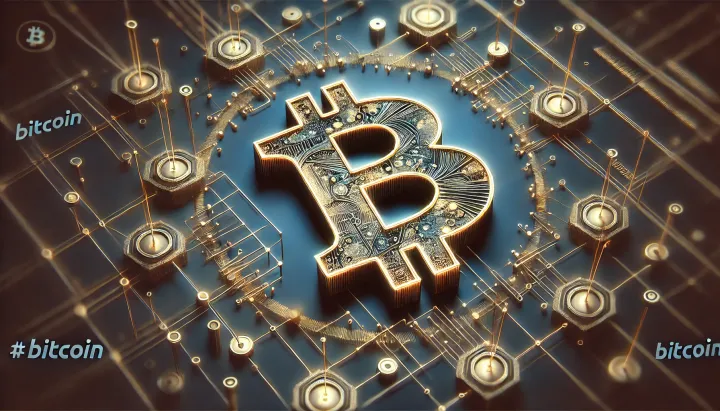Breaking Barriers: SEC Commissioner on Bitcoin ETF Approval and Regulatory Clarity
In an October 24, 2024 episode of the David Lin Report, SEC Commissioner Hester Peirce shares her critical view on the SEC’s delay in approving Bitcoin ETFs and the ongoing ambiguity in token securities classification.

- My 'short take' notes summarize the content of podcast episodes; they do not necessarily reflect my own views.
- They contain (1) a summary of podcast content and (2) some speculative views on wider implications.
- Pay attention to broadcast dates (I often summarize older episodes)
- Some episodes I summarize may be sponsored: don't trust, verify, if the information you are looking for is to be used for decision-making.
Summary
In the October 24, 2024 episode of the David Lin Report, SEC Commissioner Hester Peirce shares her critical view on the SEC’s delay in approving Bitcoin ETFs and the ongoing ambiguity in token securities classification. She advocates for a more neutral regulatory stance that fosters innovation and highlights the risks of over-relying on enforcement actions, which stifle market growth and drive innovation offshore.
Take-Home Messages
- Bitcoin ETF Approval Was Overdue: SEC Commissioner Peirce emphasizes that Bitcoin ETFs should have been approved years earlier, with delays stifling market innovation.
- Regulatory Ambiguity Harms Innovation: The SEC's unclear guidance on token classification creates uncertainty, preventing businesses from entering the crypto space.
- Relying on Enforcement Over Clarity Is Ineffective: Peirce critiques the SEC’s heavy reliance on enforcement, arguing that it harms industry growth by failing to provide a clear regulatory framework.
- A Safe Harbor Framework Is Needed: Peirce suggests that a safe harbor for tokenized assets could mitigate regulatory concerns while encouraging industry participation.
- Neutral Regulation Encourages Market Growth: A return to neutral, market-driven regulation would empower financial institutions to explore crypto assets without excessive risk.
Overview
SEC Commissioner Hester Peirce's October 24, 2024 interview on the David Lin Report centers on the SEC’s approach to crypto asset regulation, particularly the delayed approval of Bitcoin ETFs. Peirce criticizes the SEC’s decision to wait years before approving a Bitcoin ETF, noting that the court had to intervene and force the approval, a move she believes could have been avoided. According to Peirce, this delay deprived the market of important financial products and diminished investor trust in the SEC.
The discussion also highlights the broader regulatory ambiguities surrounding token classification, which Peirce believes has created significant confusion in the crypto industry. Specifically, she points out the difficulties in applying the Howey Test to digital tokens, emphasizing that the SEC’s failure to provide clarity has driven companies to operate outside the US or abandon crypto ventures entirely. This regulatory vagueness, Peirce argues, is hindering innovation in the space.
Peirce further critiques the SEC’s reliance on enforcement actions, stating that this approach creates an environment of fear and uncertainty for businesses. She advocates for a regulatory framework that is more transparent and neutral, allowing markets to innovate freely within legal bounds. By focusing on clearer guidelines and market-driven solutions, Peirce envisions a regulatory environment where financial institutions and innovators alike can participate confidently in the crypto ecosystem.
Broadcast Highlights
- Bitcoin ETF Delay: Peirce criticizes the SEC’s prolonged delay in approving a Bitcoin ETF, emphasizing that it should have been approved years ago.
- Court-Mandated Decision: A court ruling forced the SEC to approve Bitcoin ETFs, highlighting regulatory inaction.
- Regulatory Ambiguity: The lack of clarity around token securities classification continues to create confusion within the crypto industry.
- Howey Test Critique: The Howey Test is insufficient in determining whether tokens qualify as securities in the modern digital landscape.
- Enforcement-Driven Regulation: Peirce argues that the SEC’s focus on enforcement rather than clear guidance stifles market participation.
- Investor Education: Peirce stresses the importance of educating investors on the risks of crypto investments, particularly in an unclear regulatory environment.
- Tokenization Framework: A safe harbor for decentralized tokenized assets could help address legal ambiguities.
- Neutral Market Regulation: Peirce advocates for a neutral regulatory stance that would enable established financial institutions to engage in crypto markets without disproportionate risk.
- Overregulation Post-FTX: Peirce warns that overregulation following the FTX collapse could drive innovation out of the US.
- Public Comment Process: The SEC’s broad proposals in the public comment process generate unfocused feedback, leading to regulatory inefficiency.
Implications
The lack of clarity and delayed actions by the SEC have significant implications for investors, innovators, and the overall US market. Investors have been denied access to Bitcoin ETFs due to regulatory delays, while innovators face uncertainty regarding token classification. This regulatory ambiguity forces companies to seek opportunities outside the US, limiting domestic growth and innovation. By moving toward a more neutral and transparent regulatory framework, the SEC can better balance innovation with investor protection.
Future Outlook
The future of crypto regulation in the US depends on the SEC's willingness to adopt clearer, market-driven frameworks. If the agency prioritizes clear guidelines over enforcement, it can foster innovation and protect investors without stifling market growth. A safe harbor framework for tokenized assets and a neutral stance on market participation will be critical in ensuring the US remains competitive in the global crypto landscape.
Broader Implications
Bitcoin ETF Approval and Market Growth
The delayed approval of Bitcoin ETFs has broader implications for market maturity and investor confidence. A timely approval would likely have encouraged institutional investment, accelerating Bitcoin’s integration into traditional financial markets.
Legal Clarity and Innovation in Tokenization
The ongoing legal ambiguity around whether tokens are securities stifles innovation and drives projects outside US jurisdictions. Clearer regulations could stimulate blockchain-based projects and decentralized finance applications within the US, attracting talent and capital.
Global Competitiveness and Crypto Innovation
Overregulation in the US crypto space could push innovation offshore, weakening the country’s leadership in blockchain technology. By adopting a more neutral regulatory stance, the US could retain its competitive edge and encourage more global investment in its crypto infrastructure.
Financial Institutions and Bitcoin Adoption
Neutral regulation of financial institutions would allow established players to enter the Bitcoin market without excessive legal risks. This could drive widespread Bitcoin adoption, integrating digital assets more deeply into the global financial system.



Comments ()